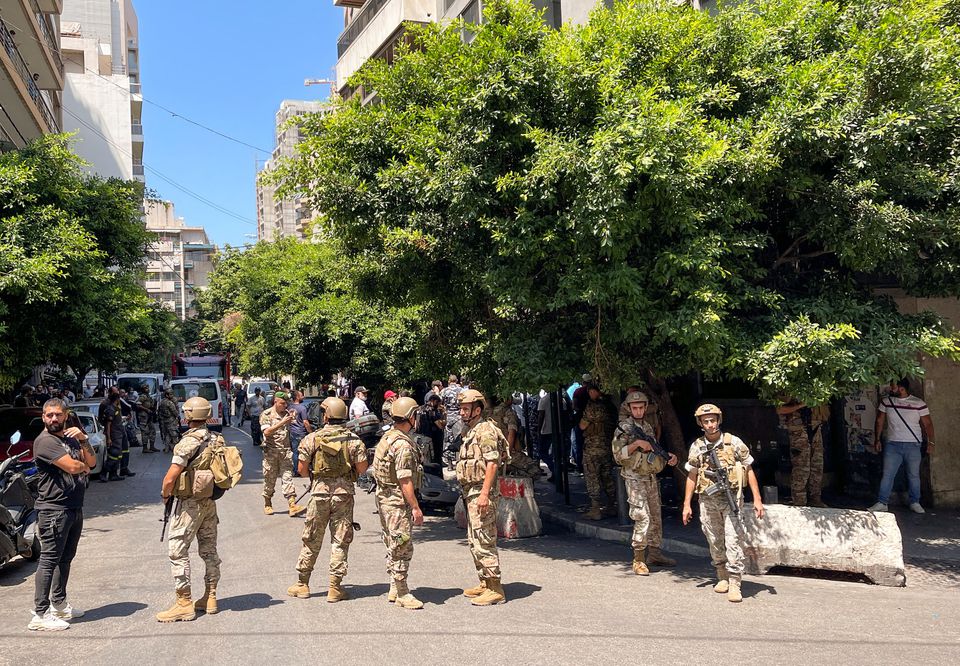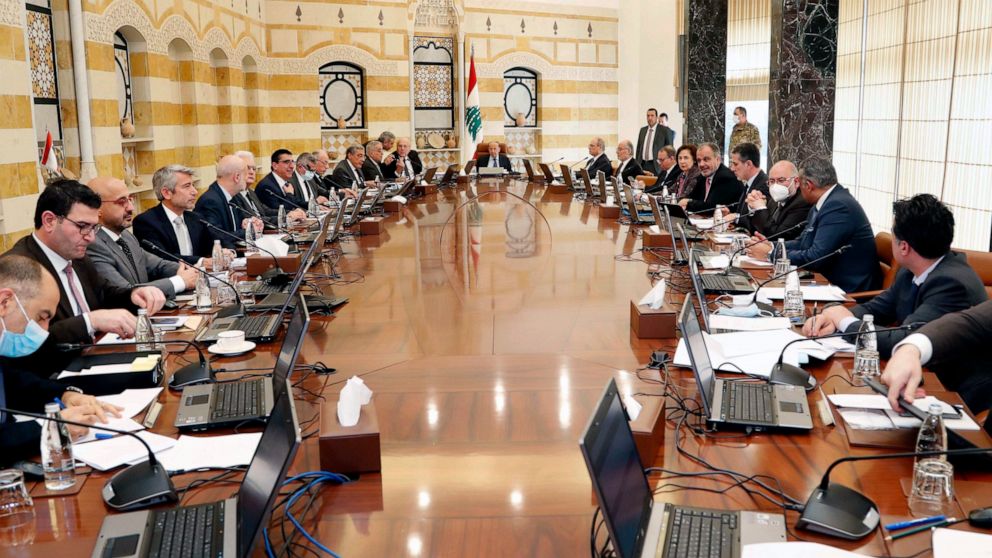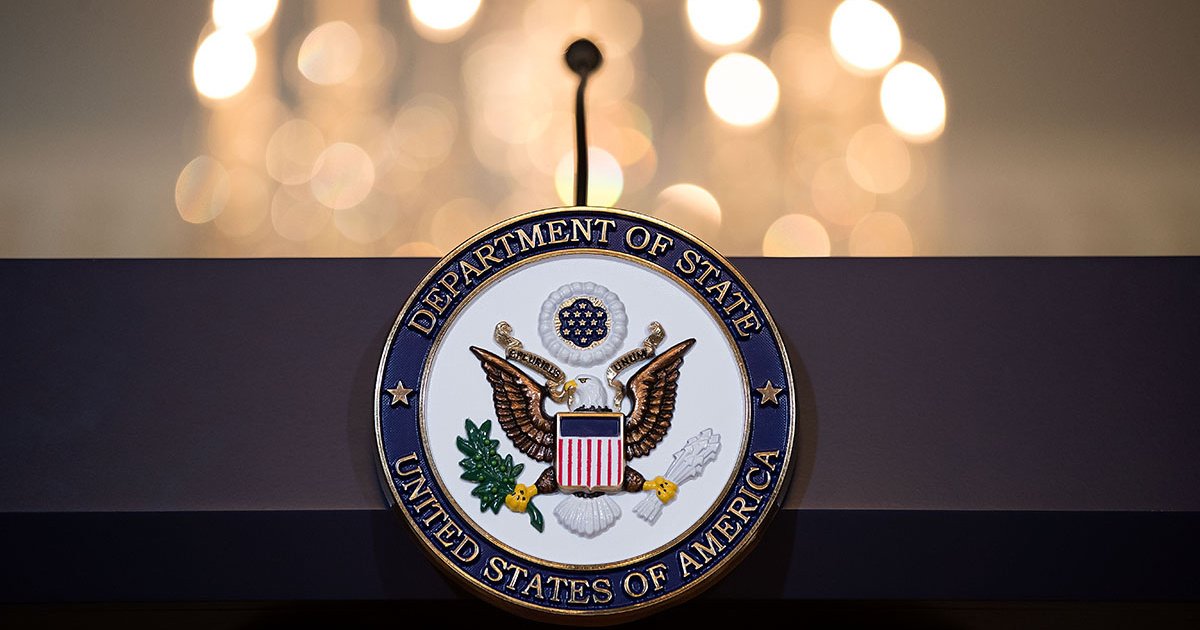by naharnet — MP Paula Yacoubian of the Change parliamentary bloc has accused the other opposition forces of “turning against the understanding” that both groupings were reportedly working on in a bid to agree on a single candidate for the presidential election. “Is there a figure that is more sovereign than (ex-MP) Salah Honein? Why […]

سجعان قزي
@AzziSejean
لكي نَتمكّنَ من انتخابِ رئيسِ جُمهوريّةٍ لا يُشكِّلُ تحديًّا لأحدٍ يجب أن نختارَ مبدئيًّا رئيسًا من خارجِ المشروعَين السياسيّين اللذين يَشطُران لبنان ويُقسّمانِه عَمُوديًّا وأفْقيًّا. إذ أيُّ مرشَّحٍ حياديِّ يَملِكُ الشَجاعةَ والقُدرةَ على حكمِ الدولةِ اللبنانيّةِ ما لم يَتمّ التوافقُ عليه بين المشروعَين اللذين لا يلتقيان دون هزيمةِ أحدهما؟ في المنطقِ ذاتِه: “المرشَّحُ الحياديُّ” هو مرشَّحُ تحدٍ أيضًا، بحيثُ سيَعتَبره أركانُ المشروعَين تحدّيًا لهم ونُكْرانًا لصِفاتِـهم التمثيليّة. وإذا ما تراجعَ الرئيسُ الجديدُ عن موقعِه الحياديِّ والتَحَق بأحد المشروعين صار فريقًا، فهل يستطيعُ أن يَحكمَ البلادَ ضِدَّ المشروعِ الفارسيِّ/السوريِّ ذي الامتدادِ اللبنانيّ، أو ضِدَّ المشروعِ الخليجيٍّ/الأميركيِّ ذي الامتداد اللبناني كذلك؟ في هذه الحالةِ لا يعودُ هناك فرقٌ بين مرشَّحِ التحدي المختارِ أصلًا من أحدِ المشروعَين ومرشَّحِ “اللاتحدّي” الـمُنضوي لاحقًا إلى أحدِ المشروعَين.
الّذين يُطالبون، عن حسنِ نيّةٍ، برئيسٍ لا يُشكِّلُ بالمطلقِ تَحدّيًا لأحدٍ، يراهنون على بقاءِ الرئيسِ الجديد خارجَ المحاورِ وفوقَها ليكونَ عَرّابَ المصالحةِ الوطنيّةِ أكثرَ من رئيسِ الجمهوريّة. لكنَّ حَسَنيَّ النيّةِ فاتَهم أنْ لا مصالحةَ لبنانيّةً قبلَ مصالحةِ محاورِ الشرقِ الأوسط، أو بموازاتِها، أو قبل انسحابِ اللبنانيّين من المحاورِ الإقليميّةِ، أو حسمِ موازينِ القوى في ضوءِ نظامٍ عالَميٍّ يبحث عن استقرار بعدما أخْفقَ نظامُ ما بعدَ سقوطِ جِدارِ برلين (09 تشرين الثاني 1989). وما يُثيرُ المخاوفَ هو أنْ تؤثّــرَ تعقيداتُ الـمِنطـقةِ وحروبُـها وتسوياتُـها على الوضعِ اللبناني، لاسيّما أنها في مرحلةٍ جديدةٍ بدأت بارتباكِ مفاوضاتِ ڤيينا حولَ الـمَلفِ النوويّ الإيرانيِّ، بتَعثّرِ الهجومِ الروسيِّ في أوكرانيا وتهديدِ بوتين “باستعمالِ السلاحِ النوويِّ لحمايةِ شعبه”، بانتصارِ اليمينِ القوميِّ في إيطاليا، بزعزعةِ الوِحدةِ الأوروبيّةِ، بالانتفاضةِ النِسويّةِ الإيرانيّةِ ضد تَعسّفِ النظامِ بخاصةٍ ضّدَ المرأةِ هذه المرّة، بالاضطراباتِ المتجدّدةِ في العراق، باستدارةِ تركيا نحو إسرائيل وسوريا، بانتشار همجيّةِ طالبان في أفغانستان، وبنجاحِ التطبيعِ العربيِّ/الإسرائيليّ. لقد باتت مصالحةُ اليهودِ والمسلِمين سهلةً أكثرَ من مصالحةِ المسلمِين الفرس والمسلمِين العرب.
BEIRUT (AP) – KAREEM CHEHAYEB — Lebanon’s Parliament on Thursday failed to elect a new president, with the majority of lawmakers casting blank ballots and some walking out. Under Lebanon’s fragile sectarian power-sharing system, the country’s 128-member parliament votes for a president, who must be a Maronite Christian. That’s a challenging threshold, and in the […]

by middleeastmonitor.com — Issam Naaman — A semi-orchestrated campaign has been seen in Lebanon over the past week calling for the terms of the 1989 Taif Agreement to be implemented. It has involved government heads, ministers, MPs, religious authorities, leaders of political parties, journalists, social media, and women and men from various organisations, circles, regions and affiliations. But why is this happening now? Is it because the American, French and Saudi Arabian foreign ministers issued a statement in New York about the need to “commit to the Taif Agreement which enables the preservation of national unity and civil peace in Lebanon”? Is there anyone within the Lebanese government who opposes the Taif Agreement or calls for its provisions to be bypassed? Or did the three foreign ministers instruct their allies and supporters of their collective interference in Lebanon’s internal affairs to raise this issue at this particularly difficult time? If so, why? I would like to remind everyone, opponents and loyalists alike, that most of the reforms and obligations stipulated in the Taif Agreement are an integral part of the Lebanese constitution. The government of Prime Minister Selim Hoss drafted a law to include the agreement’s reforms within the body of the constitution, and the House of Representatives approved it on 21 September, 1990. All we need to move forward is to implement the terms of the existing constitution.
The most prominent reforms legislated an introduction for the constitution and amended 31 articles in the constitution, the most important of which are the following: Article 22, which provides for the election of a Parliament on a national, non-sectarian basis, and a Senate with powers limited to crucial issues. Article 24, stipulating that Parliamentary seats are distributed equally between Christians and Muslims. Article 95, which works to abolish political sectarianism according to a phased plan. Is there a country left in the modern world other than Lebanon where many of the provisions of its constitution have not yet been implemented after more than 32 years? The articles were included because the sectarian quota system in government with all its complexities and corruption was adopted upon the establishment of the State of Greater Lebanon by a decision made by the French colonial authorities in 1920. Moreover, we still see the control and corruption of members of the ruling regimes, and the prioritisation of their own interests at the expense of the general national interests, as well as extreme positions taken by some religious figures and institutions.

BEIRUT, (Reuters) – Lebanon plans to slash its official exchange rate, replacing the 1,507 per dollar rate adopted 25 years ago with a rate of 15,000 in a step towards unifying numerous exchange rates, the finance minister told Reuters on Wednesday. After saying the move would come into effect on Nov. 1, the ministry later said the step was conditioned on the approval of a plan to address the crisis, which is under discussion in parliament. The Lebanese pound has plunged by more than 95% from the official rate since Lebanon fell into financial crisis three years ago, with dollars currently changing hands at around 38,000 on a parallel market. “The goal is for there to be a unification of the exchange rates in Lebanon,”
Finance Minister Youssef Khalil said, calling the decision a “fundamental step” in that direction. The step would come into force on Nov. 1, the ministry said. “Today, Lebanon has entered a new phase and is no longer using an official U.S. dollar exchange rate that makes no sense … Now we have one that is useful, based on which you can steer the economy toward a better situation,” he said.
The decision – which Khalil said was agreed with central bank governor Riad Salameh – marks a milestone in the meltdown that has plunged swathes of the population into poverty in the worst crisis since the 1975-90 civil war. “We have to wait before anticipating further moves,” he said. Ruling politicians have so far taken scarcely any action towards tackling the crisis. Unifying the numerous exchange rates operating in the country is one of several conditions set by the IMF for Lebanon to secure a badly needed aid package. The Fund has said this is crucial to boosting economic activity. The IMF said last week progress in implementing reforms remained very slow, with the bulk yet to be carried out.

By Doreen Abi Raad — cruxnow.com — BEIRUT — Lebanese Cardinal Bechara Rai denounced the launching of “boats of death” from Lebanon following the drowning of nearly 100 migrants who had attempted to flee the crisis-stricken country. The boat reportedly set off toward Europe Sept. 20 from the port of Miniyeh, near Tripoli, carrying between 120 and 170 migrants and refugees, mostly Syrians, Lebanese and Palestinians. Two days later, it sank in the Mediterranean off the coast of Tartus, Syria, about 30 miles north of Tripoli. “Tragedies have become the daily bread of the Lebanese,’” Rai, Maronite patriarch, said in his Sept. 25 homily at Dimane, the patriarchal summer residence in north Lebanon. “We are appalled by the drowning of … people at sea, boarding boats unfit for long-distance sea crossing,” he said.
Rai lamented “immigration at any cost,” the desperate measures taken by those who embark on a risky, perilous sea journey to escape Lebanon’s suffocating economy with the hopes of a decent standard of living abroad. “The search for life sometimes leads to death,” Rai said. “What is more dangerous is that this tragedy is not the first, so where are the deterrent security measures taken by the state to prevent the boats of death from launching?” the cardinal asked. Earlier in September, at least six people, including children, were killed when a boat bound for Europe from Lebanon sank off the coast of Turkey.
In April, a small migrant boat with dozens of people on board sank off Tripoli. More than 40 people were killed, and many are still missing. “The state is responsible for this tragedy by its inability to get the country out of its economic, financial and social crisis,” Rai said. “We express our heartfelt condolences to the families of the victims, and we ask God to comfort their hearts with the abundance of his mercy,” he said.
By KAREEM CHEHAYEB Associated Press — BEIRUT — Lebanon’s parliament speaker on Tuesday summoned lawmakers for a session this week to elect the country’s next president, offering a glimmer of hope of a political step forward even as chaos roils this Mideast nation. Parliament is to convene on Thursday, according to a memo from the […]
DUBAI, Sept 26 (Reuters) – Lebanon expects a written offer from U.S. mediator Amos Hochstein concerning the demarcation of a maritime border with Israel by the end of the week, Lebanon’s presidency tweeted on Monday. Lebanon’s deputy speaker of parliament Elias Bou Saab met with Hochstein last week during a visit to New York and […]

BEIRUT (AP) — Lebanese army retirees scuffled with parliamentary guard troops as they briefly broke through a cordon leading to Parliament in downtown Beirut during a rally Monday. They were protesting their decimated monthly pay amid the country’s economic meltdown. The troops managed to push the crowd back and fired teargas, forcing the elderly retirees to turn away from the street. After a short while, they gathered nearby to continue their protest and demand higher pay. They later dispersed. Hours after the protest, Parliament passed the 2022 budget, a key demand by the International Monetary Fund, with 63 legislators voting in favor, 37 voting against and six abstaining. The new budget will calculate customs tax revenue at 15,000 Lebanese pounds to the dollar at a time when the black market rate is more than double that at about 37,000 pounds to the dollar. Since the meltdown began three years ago, the customs tax revenue was calculated at the official rate of 1,500 pounds to the dollar.
According to the new budget, government expenditures stand at 40.9 trillion pounds ($1.1 billion) at the parallel market rate, while revenue stands at 30 trillion pounds ($810 million). The government also approved a 200% salary increase to civil servants and civilian and military retirees on condition that their monthly income does not exceed 12 million pounds ($324). The rally came as banks in this crisis-hit Lebanon partially reopened Monday following a weeklong closure amid a wave of heists in which assailants stormed at least seven bank branches earlier this month, demanding to withdraw their trapped savings. The Association of Banks in Lebanon had said last Monday it was going on strike amid bank holdups by depositors and activists.

by Mina Al-Oraibi | Joyce Karam — nationalnews.com — The US believes the “ball is in Iran’s court” regarding the resumption of the JCPOA deal, at a time when the prospects for the deal seems less positive than just a few months ago. Meanwhile, protests are expanding in Iran over the killing of Mahsa Amini. Speaking to The National in New York, where she participated in the US delegation to the UN General Assembly’s High Level Week, assistant secretary of state for Near Eastern affairs Barbara Leaf said that the US “was not looking for fights” with Iran. While there continues to be a diplomatic push to revive the nuclear deal with Iran, several Arab and western diplomats who spoke to The National in New York appeared less optimistic that an agreement could be reached..
Ms Leaf said she was “not going to speculate” over what options were available if the deal did not come through, but said “the package that’s on the table is a sound one”. She said the talks were “stuck because Iranian leaders haven’t made the decision to go back in, but they also have brought in extraneous issues and it’s not just we who view them as extraneous, the collective group views them as extraneous”. Among those demands are additional safeguards that the US would not pull out of the deal in the future and the removal of the Islamic Republican Guard Corps from the list of terrorist organisations. Ms Leaf said: “we’ve done everything that we needed to do at this point. The ball is really in Iran’s court.”
As to whether the protests in Iran will make it harder for politicians to make a decision to rejoin the JCPOA, Ms Leaf said: “They were having trouble making the decision before it appeared.” On the protests, she said that: “The brutal killing of this young woman was so shocking and it’s just unleashed this titanic wave of anger in Iran that is really quite striking. “I’ve talked to Iranian women over the past few years and they’re really sick of being told what to do, about their appearance [and] how to live their lives. And clearly, a lot of lot of Iranian men feel the same way.” However, she did not see the two issues as related. “I don’t know if it affects how they think about the deal. The deal has its own logic.”



